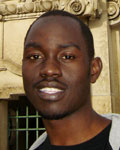Uganda: Musoke tips media on electoral coverage
"The media should endeavour to focus on issues not events or pettiness while covering the election campaigns that kicked off recently," Musoke said last week.
He emphasised that as Ugandans go to the polls next year, they will need to make informed choices on all the candidates and their manifestos which calls for the relevance of the media. Ugandans will vote for their next president on 18 February 2011.
Museveni expected to win
Seven presidential candidates including; the incumbent President Yoweri Museveni, and opposition leaders Kiiza Besigye, Nobert Mao, Betty Olive Kamya, Olara Otunnu, Abed Bwanika and Samuel Lubega are on the campaign trail. President Museveni is running for re-election for the fourth time and is expected to remain president.
"The electorate has a right to know the alternatives offered by each political party or its candidates in order for the voters to effectively make the choice," he added. Providing information that helps the voters make appropriate political choices is seen as a key element in their fundamental right of choosing leaders of their choice. "The media are under obligation to assist the public in this endeavour," he said.
Accuracy, fairness and balance
During the election campaigns, most media are seen focusing on crowd estimation, description of venues and candidates instead of focusing on development issues. Yet, Musoke argues that people need to know the issues at stake and the solutions the political parties and candidates are offering to overcome them.
He further noted that the media must stick to the professional principles of accuracy, fairness and balance while reporting on the campaigns to be relevant during the electoral process: "Inaccurate reports, misrepresentation of facts and imbalanced stories will only confuse the voters and disrupt the electoral process instead of guiding it."
The organisation noted that during the nomination period a number of media outlets failed the test of objectivity as well as focusing on issues.
Accepting inducements
On professional ethics, Musoke said; journalists should not accept any kind of inducement from the political parties or candidates that might affect their independence and objectivity while reporting. "In the same way political parties and candidates should avoid biasing or enticing journalists by offering inducements," he said.
To the government and security agencies he said; they should ensure that journalists on duty and the media houses executing their public role are accorded adequate security during the campaigns: "Harassment of journalist and intimidation of media houses should not be tolerated."








